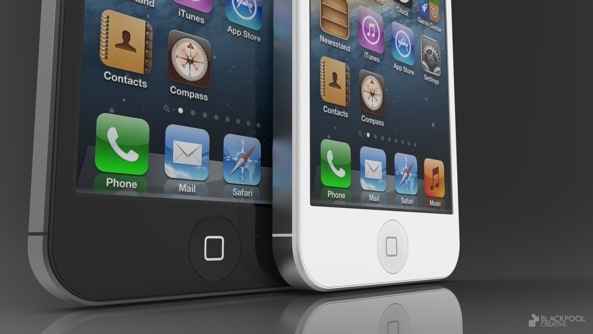iDB first discovered traces of high-speed fourth-generation Long-Term Evolution (LTE) cellular networking in iOS 5.1 code. Since then, multiple code hooks, hardware hints and credible sources have all but confirmed the industry’s worst kept secret, that the next iPhone is widely expected to work over 4G LTE networks.
But is it going to be a worldphone in respect to 4G? What if it doesn’t support a variety of LTE frequencies in use today? A new report from South Korea alleges that local telcos have been attempting to talk Apple into supporting the 1.8-gigahertz LTE frequency used in the country. This implies that the iPhone 5 may not support the numerous 4G frequencies in use across the world…
According to The Korea Times (via The Next Web), officials representing South Korean carriers SK Telecom and KT are attempting to persuade Apple to support KT’s 1.8-gigahertz frequency in Korea for the upcoming iPhone.
The company, which joined the race for LTE-enabled smartphones later rivals SK and LG, is trying to persuade Apple to have its new iPhone support LTE connectivity, according to KT officials.
SK Telecom is also pushing for the same. Officials from the nation’s biggest mobile carrier are currently in Apple headquarters in California to persuade Apple to support SK’s LTE frequency for its local customers.
KT counts 1.4 million mobile phone users and SK Telecom has more than four million LTE subscribers.
That Korean telcos are “in talks” with Apple over LTE is intriguing. The next iPhone has long been finalized. With big media all but confirming the September 12 launch, the handset is literally being assembled in Shenzen, China as we speak.
Having said that, if Korean carriers officials are negotiating support for the 1.8-gigahertz LTE band this late in the game, perhaps the iPhone 5 sports hardware capable of supporting a bunch of LTE frequencies, possibly by way of Qualcomm’s universal LTE boards?
On the other hand, South Korea typically gets iPhones in the second wave of expansion. For example, the iPhone 4S hit the U.S. on October 4, 2011, but Korean consumers had to wait until November 11, 2011. This means there may still be some time left for Korean telcos and Apple to agree upon LTE frequencies.
Coincidentally or not, the third-generation iPad does not support LTE frequencies used in Korea and many other countries in the world. Matter of fact, it only works with the 700MHz and 2100MHz frequency bands, both mainly used by telcos in the U.S., U.K., Canada and a few other countries.
SK Telecom primarily uses the 800MHz band while the 1800MHz frequency acts as its secondary band. Neither frequency is supported by Apple’s tablet. KT’s LTE only works with the 1800MHz band. These are also the frequencies used by telcos in Australia, Europe and other big markets.
Conversely, it’s these markets Apple found itself under fire over false advertising. Remember, Apple promoted the new iPad as 4G-capable whereas, due to its limited support for LTE bands, it only plays nice with 3G HSPA+ networks in markets outside the 700/2100MHz bands.
Do you think the iPhone 5 will only support a limited spectrum of LTE frequencies, like the third-generation iPad?
